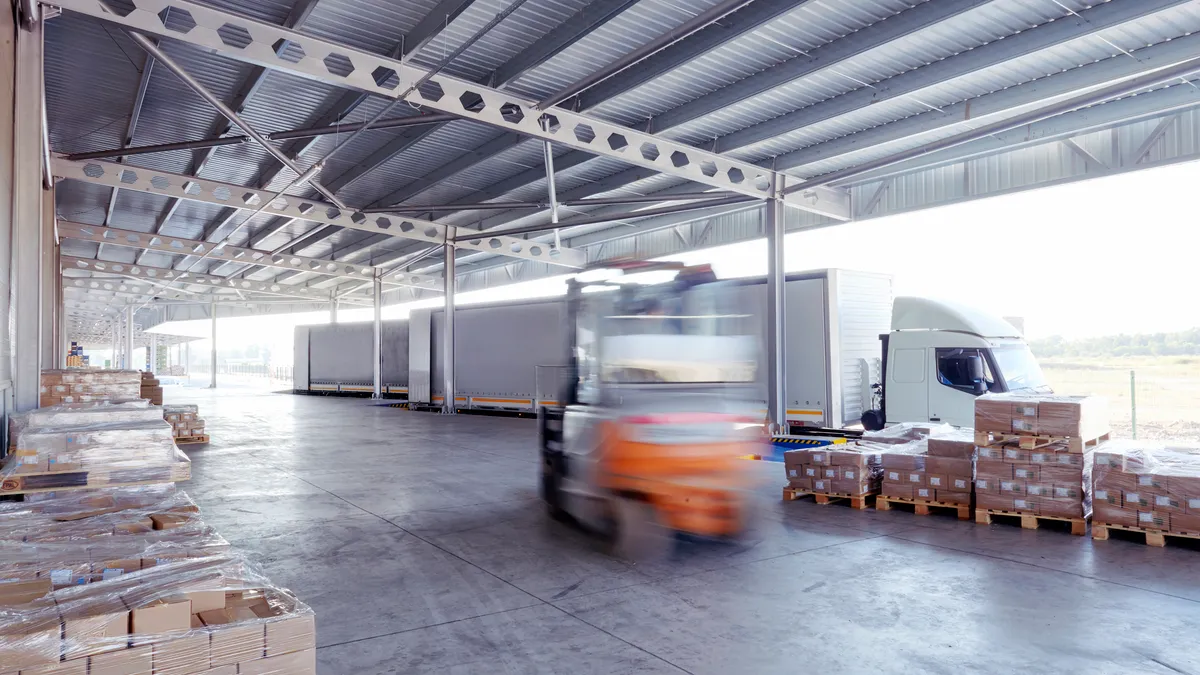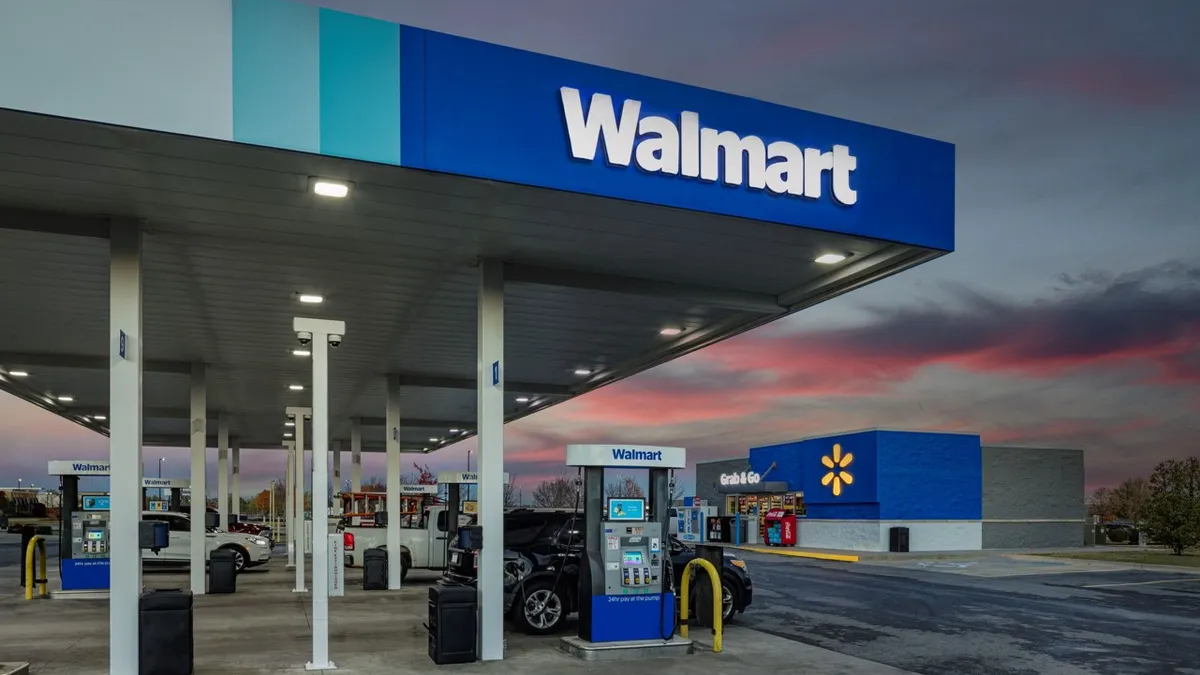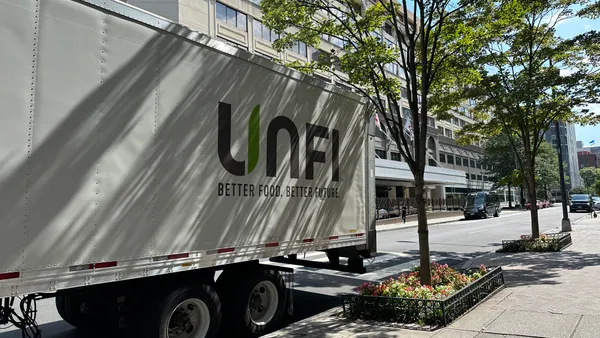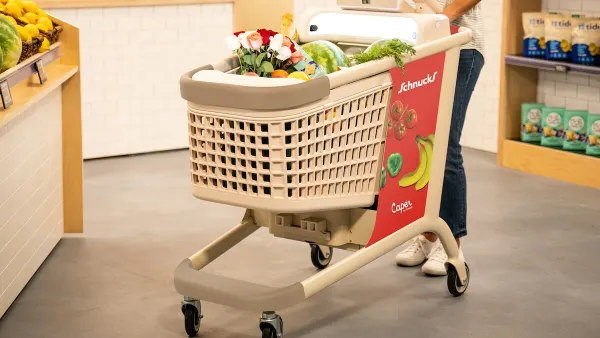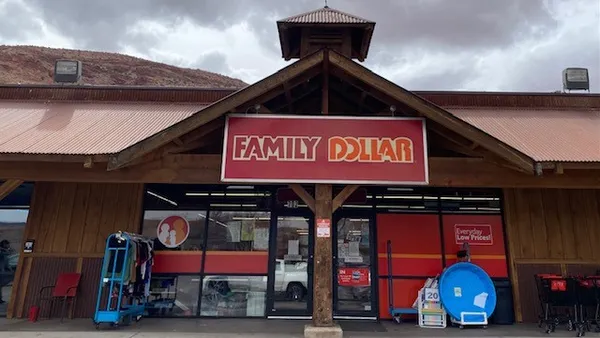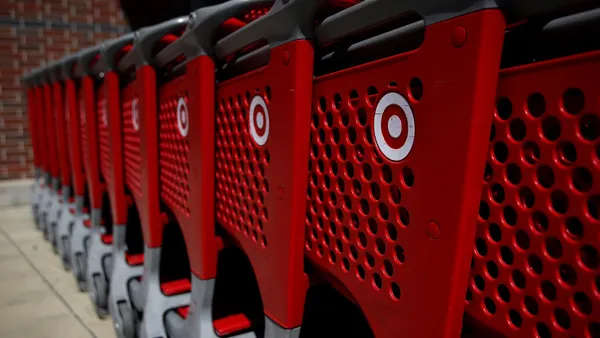Dive Brief:
- The Federal Trade Commission has ordered Walmart, Amazon, Kroger, C&S Wholesale Grocers and five other companies to provide information on how they’ve managed supply chain disruptions in order to better understand product shortages and how they’re impacting consumers.
- The FTC also said it wants to study the information, including internal documents detailing marketing efforts, sales performance and pricing strategies, to determine whether companies engaged in anticompetitive behavior and contributed to rising prices.
- The agency said its order is not tied to any law enforcement action and said that the nine companies have 45 days to respond.
Dive Insight:
The FTC’s order comes as food retailers continue to deal with supply chain disruptions that have prompted them to ration products and engage in clever marketing tricks to cover over shortages.
In addition to Amazon, Walmart, Kroger and C&S Grocers, the agency is also asking Associated Wholesale Grocers, McLane Co., Procter & Gamble, Tyson Foods and Kraft Heinz to turn over information about their recent supply chain management practices.
The FTC wants to know the “primary factors” behind the companies’ ability to supply and distribute products, how shortages have impacted their operations, the steps they’re taking to alleviate disruptions and how they’re allocating products to their stores amid shortages, according to the announcement on Monday.
The agency has requested internal documents outlining the companies’ supply chain management, including strategies on pricing, marketing, costs, sales volumes and profit margins. It’s also asking for voluntary comments from retailers, CPGs, wholesalers and consumers about how supply chain issues are impacting competition for consumer goods.
“Supply chain disruptions are upending the provision and delivery of a wide array of goods, ranging from computer chips and medicines to meat and lumber,” FTC Chair Lina M. Khan said in a statement. “The FTC has a long history of pursuing market studies to deepen our understanding of economic conditions and business conduct, and we should continue to make nimble and timely use of these information-gathering tools and authorities.”
Some large retailers have been able to mitigate the effects of the supply chain crunch by chartering their own cargo ships, tapping into supply reserves and using other measures. Kroger CEO Rodney McMullen noted during the company’s earnings call in September that the company has leaned on the private label manufacturing facilities it owns to turn out products.
But many companies have contended with a rotating array of shortages. “It's a challenging environment out there. One of our grocery competitors described that as playing whack-a-mole,” BJ’s Wholesale Club CEO Bob Eddy said during the company’s Q3 earnings call earlier this month. “I think that's a very accurate illustration of what happens, you fix one problem and another one pops up.”
SpartanNash CEO Tony Sarsam said in mid-November that inbound fill rates during the wholesale company's third quarter were down more than 20% among some major suppliers.
The National Grocers Association, which has lobbied lawmakers to investigate large retailers' supply chain operations during the pandemic, applauded the FTC’s move in a statement on Tuesday. The association has claimed independent grocers face economic discrimination, with large competitors getting favorable pricing and supply chain distribution since the beginning of the global health crisis.
“These actions leave independent grocers short-handed on key products their customers need and force small, independent grocers and their customers to bear a disproportionate burden of surging food price inflation during supply chain crunches,” Chris Jones, NGA's senior vice president of government relations and counsel, said in the statement.



